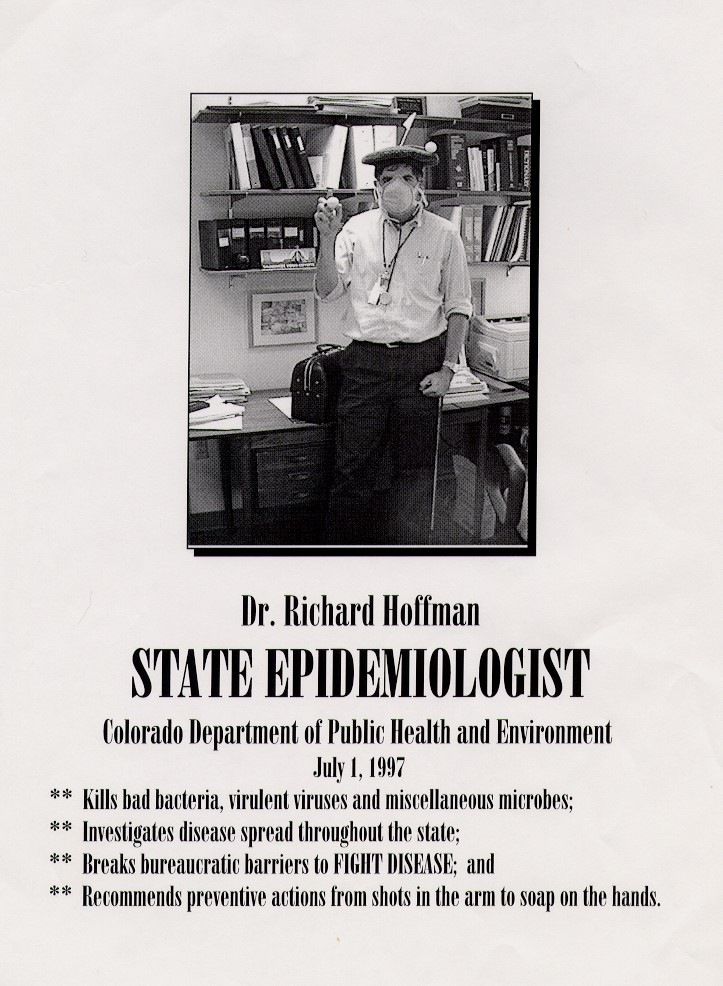Dr. Hoffman: The scope of the COVID-19 pandemic is worldwide. We all now begin to understand what epidemiologists do to protect the health of our communities. We won’t find any of these answers in a textbook, and the world has become our classroom.
We are living through social distancing, which is different than anything we have ever experienced. We are learning about hygiene, about our hands, noses, and mouths, and how they can spread diseases. We are learning about the social determinants of health – how certain infections don’t recognize any borders and tend to follow certain patterns. And we are learning that certain groups who may have less access to health care or have more chronic conditions are at higher risk of acquiring the infection in crowds and developing a more complicated and severe, if not fatal, case.
COVID-19 is not just something we discuss in medical conferences. This is all day, every day, public health. It is in the media. We are feeling the economic fallout from this, and we do not yet know what the repercussions will be. Scientists are searching for answers on what a vaccine can do to protect us. We don’t know how long it will take to make an effective vaccine against COVID-19.
Dr. Gaur: Physicians on the front lines in the COVID-19 pandemic are selfless, resilient, and innovative. They dutifully show up to work every day to protect human life, despite resource limitations, and they are developing treatment strategies for very sick patients with strong clinical acumen and emerging research. Through it all, they maintain their professionalism and compassion with patients, their families, and team members.
Public health officials are now very much in mitigation mode and thinking about repercussions, which requires thoughtful decisions about how we safely reopen the country and resume some normalcy. People are discussing COVID-19 on a local level about how they will do contact tracing to mitigate small outbreaks after the country reopens, and that requires great expertise.
Leadership is extremely important during this time. People have risen to the occasion from the top down, from the executive branch to local levels. We are seeing how local and regional policies are taking precedence over federal policies, and we are learning what works and does not work.
COVID-19 unveiled many fundamental problems in our country and is changing the way we think about our national infrastructure. People will begin discussing important issues, including the high cost of health care, lack of personal protective equipment, and mass testing. Hopefully, the next time something like this happens, we will be well prepared.

Dr. Hoffman: We can learn good lessons about the number of ventilators and personal protective equipment that are necessary for the National Strategic Stockpile. Many questions remain about using data, how to identify sick patients with COVID-19, how to use antibody tests to determine who is immune and who is still susceptible, and whether the immune response gives short term or lifetime protection.
How do leaders determine when the storm has passed sufficiently so that we can get back to a more normal life without sheltering in place? Our world is living one day at a time. I’ve never experienced anything like COVID-19 during my career, but I am inspired to be witness to the compassion, courage, truthfulness, and dedication of physicians and health care workers around the globe. Their inquiring minds search relentlessly for better treatments and methods of prevention. They work cooperatively and persevere in applying their knowledge and experience.
I am confident that when we look back to understand what happened and why, our country will be strengthened.
Read more about the 2020 Ho Din Award Winner, Dr. Priyanka Gaur

